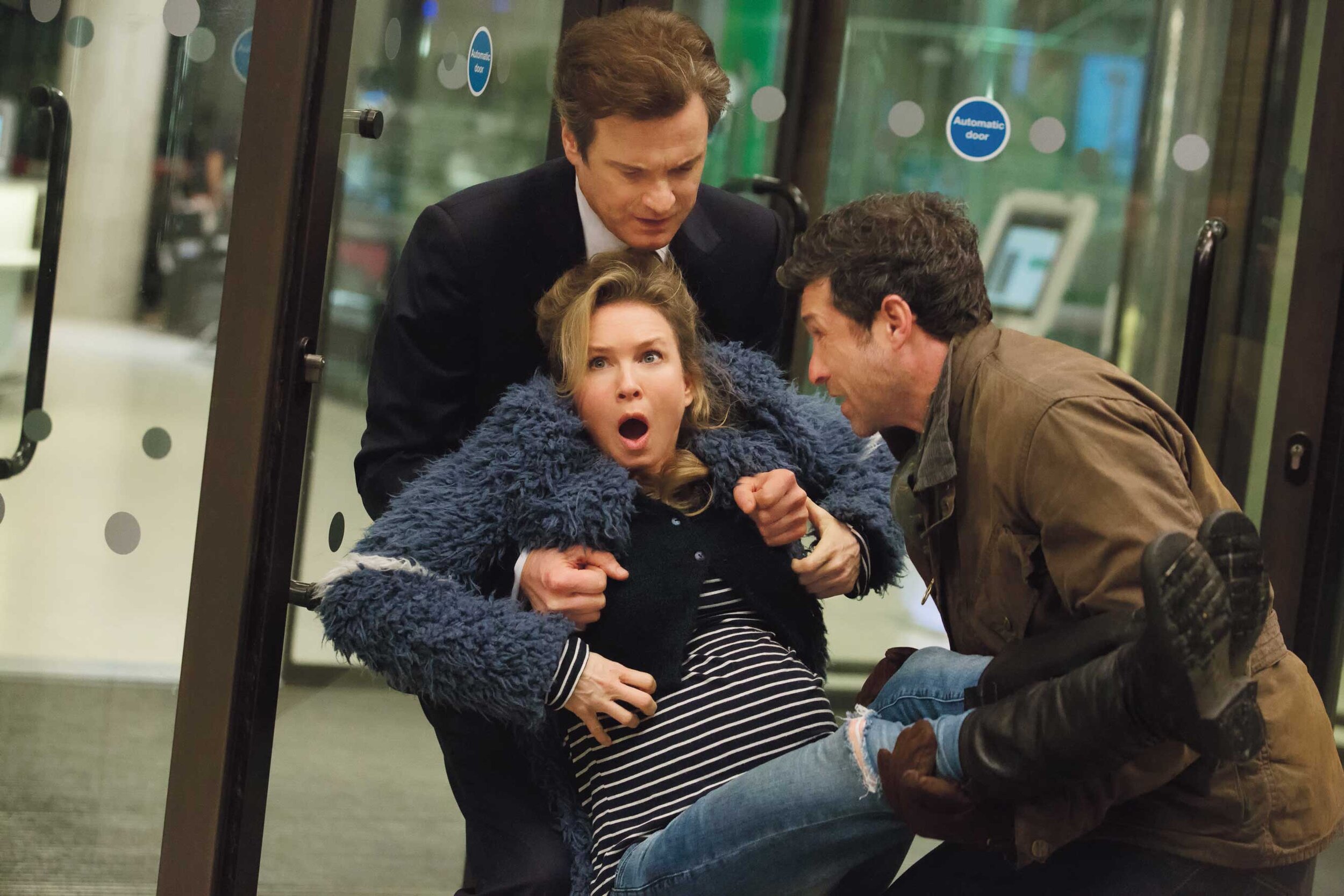Bridget Jones’s Baby is a Romantic Comedy Stuck in Time
Bridget Jones’s Baby - the newest installment in the beloved romantic comedy franchise since 2004’s The Edge of Reason - opens with the titular character (Renée Zellweger) grappling with her own mortality.
Despite Bridget’s successful career as a television news producer, her mother uses the occasion of Bridget’s 43rd birthday to point out her fading chances for marriage and childbirth. Her series-long love interests, Daniel Cleaver (Hugh Grant) and Mark Darcy (Colin Firth), are presumed dead and married, respectively. In the workplace, too, Bridget finds herself increasingly irrelevant under a young, tech-savvy new boss more concerned with viral content and clicks than with serious journalism.
It’s a valid concern for Bridget Jones’s Baby, considering how much the Hollywood landscape has changed since the last Bridget Jones installment was released in 2004.
As big-budget Hollywood tent-poles take up more and more of the oxygen at the multiplex, and smaller, independent releases more efficiently provide content for streaming services like Netflix, movies like Bridget Jones’s Baby - mid-budget and low-concept, without Oscar potential - seem to have been squeezed out. And within the romantic comedy genre, it seems that the Judd Apatow model of raunchy, ‘hard-R’ comedies such as Trainwreck and Knocked Up, targeted at both male and female audiences, has supplanted the sweeter, predominantly female audience driven romantic comedies that once dominated during the Bridget Jones craze.
It is within this context that Bridget Jones’s Baby exists, as what turns out to be a fairly conventional romantic comedy. Bridget’s new love interest in this installment, Jack Qwant (Patrick Dempsey), is a hunky dating app millionaire who can’t seem to figure out his own love life. After Jack saves her from slipping into a puddle of mud - surprise! - he immediately falls in love with our clumsy heroine. They sleep together. Not long after, Bridget learns that her ex-flame Mark Darcy, an emotionally repressed Englishman with a secret romantic side, is divorcing his wife. They sleep together. Bridget finds out she’s pregnant. Who is the father? Who will Bridget choose? Love triangle. Conflict. Reconciliation. Happy ending.
At times, Bridget Jones’s Baby flirts with the social progress that has been made since the last installment premiered in 2004. Bridget Jones’s Baby begins with the titular character flaunting her status as an empowered woman: unattached, and uses younger men for sex. After learning about her pregnancy, Bridget also considers the option of single motherhood. Several characters lead happy lives with their same-sex partners and adopted children, and there are some successful models for family units that do not fit the traditional mold. But without giving away any spoilers, Bridget Jones’s Baby ends as conventionally - and heteronormatively - as one might expect from the genre. For fans hoping for twelve years of added perspective to culminate in a satisfying conclusion for this story, Bridget Jones’s Babymight be a slight disappointment.
The ending is just one of many points at which Bridget Jones’s Baby struggles to keep up with the times. References to Gangnam Style and Pussy Riot seem dated in 2016. Running gags about foreign accents and the two potential fathers being mistaken for a gay couple seem like ripe targets for think pieces from the millennials who have taken over Bridget’s workplace. Moving Bridget Jones’s iconic diary from print to iPad doesn’t seem to change how outdated it all feels in the era of social media. It is often hard to say why a new Bridget Jones movie, or more specifically, why this movie needed to be made at this time.
“I don’t care if it’s old-fashioned, I’m not embarrassed because I want to make something meaningful,” Bridget says in a climactic kiss-off to her younger boss, after she is fired near the end of the film. In this moment, it’s a powerful statement of defiance, as Bridget asserts her worth against a culture that seems to have already moved on. It’s also a sentiment that could explain why a movie like this might have been made. There should be room for a sweet, openly sentimental romantic comedy to cut the bitterness and ironic detachment that tends to come with the prevailing Apatowian style of modern romantic comedy. And it should be possible to make an entertaining, if dated, film about a flawed but successful woman dealing with late childbirth, aging, and love in her forties. Bridget Jones’s Baby is far from great, but it makes a strong effort to fight for its existence.
